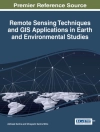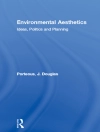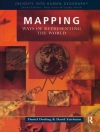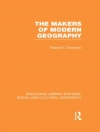This book examines sustainability issues of 15 deltas in the world. Each delta is described in five sections: physical setting, socioeconomic characteristics, current issues, management measures and perspective for future pathways to greater sustainability. These deltas, diverse in their geographical and economic conditions, are all confronted with natural hazards and pollution issues, posing threats to ecological health, human security and economic development. The book offers an overview of delta challenges in an integrated natural and social science approach. It is intended for researchers, graduate students and the public, especially those dwelling in deltas. It aims to improve knowledge of the current situation and to enhance awareness of the urgency of collective action to prepare for the uncertain future of these deltas. Possible future pathways towards delta sustainability are also addressed in the book.
Innehållsförteckning
Chapter 1 Amazon River Delta.- Chapter 2 Changjiang River Delta.- Chapter 3 Danube River Delta.- Chapter 4 Fly River Delta.- Chapter 5 Ganges-Brahmaputra-Meghna Delta.- Chapter 6 Indus River Delta.- Chapter 7 Irrawaddy River Delta.- Chapter 8 Lena River Delta.- Chapter 9 Mackenzie River Delta.- Chapter 10 Mekong River Delta.- Chapter 11 Mississippi River Delta.- Chapter 12 Nile River Delta.- Chapter 13 Pearl River Delta.- Chapter 14 Rhine-Meuse-Scheldt Delta.- Chapter 15 Río de la Plata Estuary.- Chapter 16 Yellow River Delta.- Summary.
Om författaren
Professor Weiguo Zhang, a Physical Geographer at East China Normal University in Shanghai, focuses his research on geomorphology, sedimentology, and coastal environmental processes. His work aims to understand human-nature interactions in coastal zones over various timescales and to support sustainable coastal management. As a Principal Investigator, he has received funding from the National Natural Science Foundation of China, the Ministry of Science and Technology of China, and the Science and Technology Commission of Shanghai Municipality. He has published over 150 peer-reviewed papers and has received awards from the Geographical Society of China, the Ministry of Education of China, and the Shanghai Municipality. He serves as an Academy Member of Future Earth Coasts (since 2019), a Member of the Scientific Steering Committee of Future Earth Coasts (2016-2019), and an Associate Editor of Estuarine, Coastal and Shelf Science (since 2017).
Professor Huib de Vriend is Emeritus Professor River Engineering and Morphology at Delft University of Technology. Before his retirement in 2012, he was Director of Science of Deltares (formerly WL Delft Hydraulics) and Professor of River Engineering and Morphology at Delft University of Technology. Prof. de Vriend was Director of the Eco Shape Foundation, which co-ordinates the ‘Building with Nature’ innovation programme executed by a consortium of government agencies, universities, research organizations, consultants and engineering contractors. He has over 200 scientific publications in the fields of rivers and estuarine, coastal and seabed dynamics. Prof. de Vriend was a member of the Dutch National Commission for the EIA and of the think-tank on flood safety of the Netherlands Ministry of Infrastructure and Environment.












